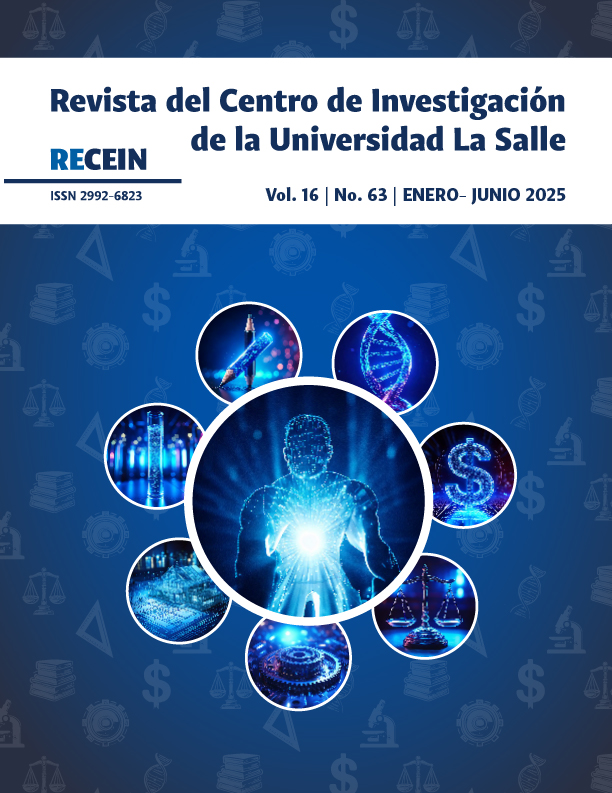Motivaciones utilitarias, hedónicas y ecológicas e intención de compra de moda sustentable entre millennials mexicanos911
Contenido principal del artículo
Resumen
Esta investigación analiza la influencia de las motivaciones hedónicas, utilitarias y ecológicas en la intención de compra de ropa sustentable entre millennials mexicanos. Se utiliza una investigación cuantitativa, no experimental, explicativa y transversal a 383 participantes. Los resultados indican un impacto positivo y significativo de la motivación utilitaria y ecológica sobre la intención de compra de moda sustentable, siendo la motivación utilitaria la motivación que más influye en los consumidores. Sin embargo, la motivación hedónica no impacta en la intención de compra. Dado que se utiliza un muestreo no probabilístico, los resultados no pueden ser generalizados para la población millennial mexicana, si bien contribuyen a la comprensión de la naturaleza de los aspectos que impulsan la intención de comportamientos de compra ecológicos.
Descargas
Detalles del artículo

Esta obra está bajo una licencia internacional Creative Commons Atribución-NoComercial-CompartirIgual 4.0.
Esta revista se encuentra bajo la licencia de Creative Commons, por tanto, los autores, al postular su artículo, lo adhieren a dicha licencia.El autor puede disponer de su artículo para su archivo en repositorios institucionales o en páginas web personales, con la referencia y agradecimientos a la fuente donde se ha publicado.
Citas
Aw Cheng-Xi, E. (2019). Understanding the webrooming phenomenon: Shopping motivation, channel-related benefits and costs. International Journal of Retail and Distribution Management, 47(10), 1074-1092. https://doi.org/10.1108/IJRDM-01-2019-0026
Asociación Mexicana de Venta Online. (2022). Estudio de venta online: El consumidor digital mexicano. https://www.amvo.org.mx/estudios/estudio-sobre-venta-online-en-mexico-2022/#0
Bick, R., Halsey, E., & Ekenga, C. C. (2018). The global environmental injustice of fast fashion. Environmental Health, 17(92), 1-4. https://doi.org/10.1186/s12940-018-0433-7
Budiman, S., Palupi, M., Haryono, T., & Udin, U. (2022). The Effect of Design Quality on Hedonic Search, Utilitarian Search and Impulse Buying in Distribution Market. Journal of Distribution Science, 20(5), 49-64. https://doi.org/10.15722/jds.20.05.202205.49
Carrillo Herrera, K. (2018). Moda sustentable. Loginn, 2(1), 25-35.
Correa, M. E. (2019). Diseño y sustentabilidad. Un nuevo escenario posible en el campo de la moda. Cuadernos del Centro de Estudios en Diseño y Comunicación. Ensayos, 76, 89-104. http://dx.doi.org/10.18682/cdc.vi76.105
da Silva, A. W. P., Coelho, A. L. D. A. L., dos Santos, H. C. C., Veiga Neto, A. R., Oliveira, B. N. F., & El-Aouar, W. A. (2023). The construction of sustainability conceptions of Brazilian students in elementary school. Environment, Development and Sustainability, 1-39. https://doi.org/10.1007/s10668-022-02860-z
Elkington, J. (1997). Cannibals with forks: The triple botton line of 21st century business. Capstone.
Ejelöv, E., Bergquist, M., Hansla, A., & Nilsson, A. (2022). Why are they eco-friendly? Attributing eco-friendly descriptive norms to intrinsic motivation increases pro-environmental purchase intention. Plos one, 17(10), e0265839. https://doi.org/10.1371/journal.pone.0265839
Fernandes, E., Semuel, H., & Adiwijaya, M. (2020). The Influence of Social Media Advertising on Purchase Intention Through Utilitarian and Hedonic Shopping Motivation: A Study at Beauty Care and Anti-Aging Clinic Service in Surabaya. Petra International Journal of Business Studies, 3(1), 23-36. https://doi.org/10.9744/ijbs.3.1.23-36
Fuller, C. M., Simmering, M. J., Atinc, G., Atinc, Y., & Babin, B. J. (2016). Common methods variance detection in business research. Journal of business research, 69(8), 3192-3198. https://doi.org/10.1016/j.jbusres.2015.12.008
Gawior, B., Polasik, M., & del Olmo, J. L. (2022). Credit card use, hedonic motivations, and impulse buying behavior in fast fashion physical stores during COVID-19: The sustainability paradox. Sustainability, 14(7), 4133. https://doi.org/10.3390/su14074133
Hair Jr, J. F., Hult, G. T. M., Ringle, C. M., Sarstedt, M., Danks, N. P., & Ray, S. (2021). Partial least squares structural equation modeling (PLS-SEM) using R: A workbook. Springer Nature.
Hair Jr, J. F., Sarstedt, M., Ringle, C. M., & Gudergan, S. P. (2018). Advanced issues in partial least squares structural equation modelling. Thousand Oaks, CA: Sage Publications.
Hasbullah, N. N., Sulaiman, Z., Mas’od, A., & Ahmad Sugiran, H. S. (2022). Drivers of Sustainable Apparel Purchase Intention: An Empirical Study of Malaysian Millennial Consumers. Sustainability, 14(4), 1945. https://doi.org/10.3390/su14041945
Henseler, J., Ringle, C. M. y Sarstedt, M. (2015). A new criterion for assessing discriminant validity in variance-based structural equation modeling. Journal of the Academy of Marketing Science, 43(1), 115-135. https://doi.org/10.1007/s11747-014-0403-8
Iqbal, J., Yu, D., Zubair, M., Rasheed, M. I., Khizar, H. M. U., & Imran, M. (2021). Health consciousness, food safety concern, and consumer purchase intentions toward organic food: The role of consumer involvement and ecological motives. Sage Open, 11(2), 21582440211015727. https://doi.org/10.1177/21582440211015727
Kock, N., & Lynn, G. (2012). Lateral collinearity and misleading results in variance-based SEM: An illustration and recommendations. Journal of the Association for information Systems, 13(7), 1-10.
Kumar, S., & Yadav, R. (2021). The impact of shopping motivation on sustainable consumption: A study in the context of green apparel. Journal of Cleaner Production, 295, 126239. https://doi.org/10.1016/j.jclepro.2021.126239
la Rosa, A., & Johnson Jorgensen, J. (2021). Influences on consumer engagement with sustainability and the purchase intention of apparel products. Sustainability, 13(19), 10655. https://doi.org/10.3390/su131910655
Mehfooz Khan, S., & Siddiqui, D. A. (2019). Ethical Consumption, Consumer Behavior and Motivation: Evidence from Pakistan. SSRN Electronic Journal. https://doi.org/10.2139/ssrn.3444133
Mihanovich, M. (2021). Slow fashion en tiempo de redes sociales. Cuadernos del Centro de Estudios en Diseño y Comunicación. Ensayos, 100, 217-228.
Niinimäki, K., Peters, G., Dahlbo, H., Perry, P., Rissanen, T., & Gwilt, A. (2020). The environmental price of fast fashion. Nature Reviews Earth & Environment, 1(4), 189-200. https://doi.org/10.1038/s43017-020-0039-9
Organización de Naciones Unidas. (2019). El costo ambiental de estar a la moda. https://news.un.org/es/story/2019/04/1454161
Organización de las Naciones Unidas. (2021). La economía circular: un modelo económico que lleva al crecimiento y al empleo sin comprometer el medio ambiente. https://news.un.org/es/story/2021/03/1490082
Roos, D., & Hahn, R. (2019). Understanding collaborative consumption: An extension of the theory of planned behavior with value-based personal norms. Journal of Business Ethics, 158, 679-697. https://doi.org/10.1007/s10551-017-3675-3
Ryan, R. M. (Ed.). (2012). The Oxford handbook of human motivation. OUP USA.
Seretny, M., & Gaur, D. (2020). The model of sustainable marketing as a responsible approach to marketing in the era of industry 4.0. In Sustainable Development and Social Responsibility—Volume 1: Proceedings of the 2nd American University in the Emirates International Research Conference, AUEIRC'18–Dubai, UAE 2018 (pp. 283-289). Springer International Publishing.
Serón, D. (2020). Economía circular: De alternativa a necesidad. Desarrollo y Territorio, 8, 112-117.
Shahzad, M., Qu, Y., Rehman, S. U., & Zafar, A. U. (2022). Adoption of green innovation technology to accelerate sustainable development among manufacturing industry. Journal of Innovation & Knowledge, 7(4), 100231. https://doi.org/10.1016/j.jik.2022.100231
Sobuj, M., Khan, A. M., Habib, M. A., & Islam, M. M. (2021). Factors influencing eco-friendly apparel purchase behavior of Bangladeshi young consumers: case study. Research Journal of Textile and Apparel, 25(2), 139-157. https://doi.org/10.1108/RJTA-10-2019-0052
Solino, L. J. S., de Lima Teixeira, B. M., & de Medeiros Dantas, Í. J. (2020). The sustainability in fashion: a systematic literature review on slow fashion. International Journal for Innovation Education and Research, 8(10), 164-202. https://doi.org/10.31686/ijier.vol8.iss10.2670
Suhud, U., Allan, M., Wiratama, B., & Maulida, E. (2020). Slow Fashion in Indonesia: Drivers and Outcomes of Slow Fashion Orientations. Research in World Economy, 11(6), 27. https://doi.org/10.5430/rwe.v11n6p27
Stancu, C. M., Grønhøj, A., & Lähteenmäki, L. (2020). Meanings and motives for consumers’ sustainable actions in the food and clothing domains. Sustainability, 12(24), 1-25. https://doi.org/10.3390/su122410400
Sütütemiz, N., & Saygılı, M. (2020). The effects of hedonic and utilitarian shopping motivations on online purchasing intentions: a Turkish case study. The Retail and Marketing Review, 16(1), 61-83. https://orcid.org/0000-0001-6920-822X
Tabernero, C., & Hernández, B. (2011). Self-efficacy and intrinsic motivation guiding environmental behavior. Environment and Behavior, 43(5), 658-675. https://doi.org/10.1177/00139165103797
Tang, Y., Chen, S., & Yuan, Z. (2020). The effects of hedonic, gain, and normative motives on sustainable consumption: Multiple mediating evidence from China. Sustainable Development, 28(4), 741-750. https://doi.org/10.1002/sd.2024
Tehseen, S., Ramayah, T., & Sajilan, S. (2017). Testing and controlling for common method variance: A review of available methods. Journal of management sciences, 4(2), 142-168. https://doi.org/10.20547/jms.2014.1704202
Tenaglia, M., & Sofía, N. (2022). ¿Qué tan ético es "vestir verde"?. Cuadernos del Centro de Estudios en Diseño y Comunicación. Ensayos, 106, 59-70. http://dx.doi.org/10.18682/cdc.vi106.4033
Testa, F., Iovino, R., & Iraldo, F. (2020). The circular economy and consumer behaviour: The mediating role of information seeking in buying circular packaging. Business Strategy and the Environment, 29(8), 3435-3448. https://doi.org/10.1002/bse.2587
Wenjing, L., Bhutto, T.A., Xuhui, W., Maitlo, Q., Zafar, A.U., Bhutto, N. (2020). Unlocking employees’ green creativity: the effects of green transformational lead- ership, green intrinsic, and extrinsic motivation. Journal of Cleaner Production, 255, 120229. https://doi.org/10.1016/j.jclepro.2020.120229
Won, J., & Kim, B. Y. (2020). The effect of consumer motivations on purchase intention of online fashion-sharing platform. Journal of Asian Finance, Economics and Business, 7(6), 197-207. https://doi.org/10.13106/JAFEB.2020.VOL7.NO6.197
 English
English


